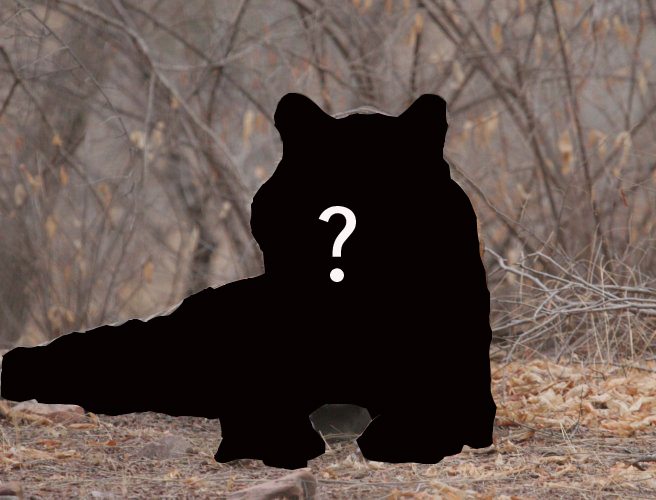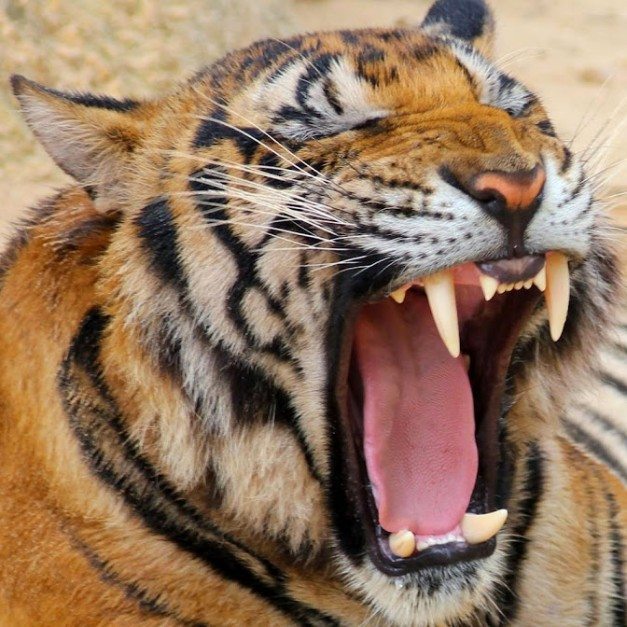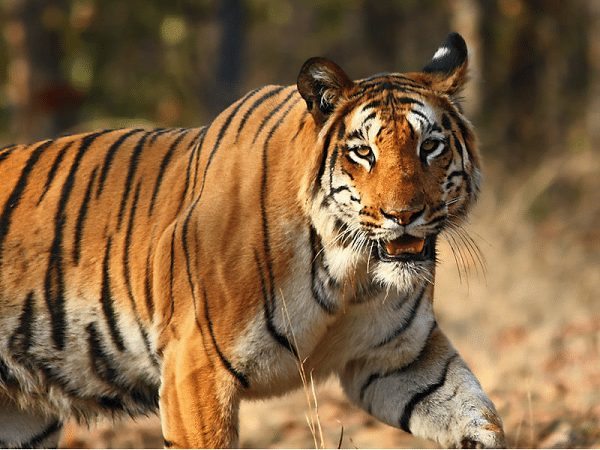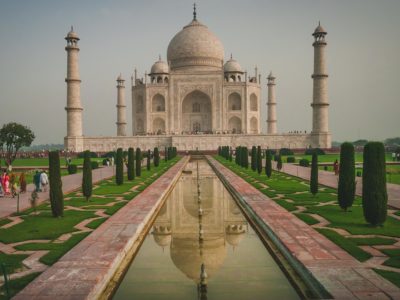Just picture a world drained of wildlife. Your first reaction may be this is impossible or unimaginable, isn’t it?
It is a shocking truth.
Several animals and birds are standing on the verge of destruction because of excessive poaching, illegal trading, loss of habitat, pollution and deforestation.
One of the biggest challenges that the government, environmentalists and private organizations are facing in India is to put a full stop on the killing and trading of animals.
The Future of Wildlife Conservation in India
Table of Contents
The disturbing fact is that the scientists have predicted if the concrete conservation methods are not undertaken, then the next generation in India would be only able to see the animals in their text books or movies.
However, as the famous idiom goes, “it is better late than never.”
The government of India, forest officials and many wildlife conservation bodies are leaving no stone unturned to safeguard the animals from extinction.
Read about Yala National Park in Sri Lanka, a great place to see Leopards in Asia.
THE BIG QUESTION: WHY PROTECTING WILDLIFE IS NEED OF THE HOUR?

Why it is imperative to protect the wildlife in India? Well, it cannot be debated that India is a storehouse of many animals like the mighty Royal Bengal tigers, majestic Asiatic lions, huge elephants, rare one-horned rhinos and birds.
With plenty of exotic animals to see, it becomes a duty of every citizen of India besides the government to carve out various ways or plans to protect wildlife, the integral heritage of India.
Let us try to gauge out certain dangers or reasons responsible for the decreasing count of animals.
Poaching
The most vital reason largely responsible for the dwindling wildlife count in India is illegal poaching and trading. E

very year, many innocent animals are killed by the greedy poachers just to satisfy their lure for money.
They slay down the animals to trade their flesh, teeth, bone and skin in exchange of for cash, gold and weapons.
Black Market
In the western market, the demand for the products made from their skin, fur or bone is very high.
The horrifying fact here is that the money involved in the black marketing of the products is very high.
The desire of making quick money in short span of time drive poor and needy people to kill the animals.
Toxic Waste
Many companies discharge harmful chemicals into the rivers that the animals use for drinking.
The deadly chemicals poison the water that can prove fatal for the existence of wildlife and most importantly aquatic animals.
Urban Sprawl
A large part of the forest area is clear cut just to set up new companies or homes. This act leads to loss of habitat for animals.
Sometimes, there have been instances when the animals wandered into the cities or towns in search for food.
People get frightened after seeing the animals in their region and kill them.
SIGNIFICANT STEPS INITIATED TO SAFEGUARD THE WILDLIFE

To arrest the rising threat of wildlife poaching and trading, the government and various organizations have taken some noteworthy steps to protect diverse species of animals.
Some of the popular measures taken are mentioned below:
CREATING WILDLIFE SANCTUARIES AND NATIONAL PARKS
Over the years, the government is making sure that there must be a wildlife sanctuary or national park in almost every state of India.
Some of the parks or sanctuaries such as the Corbett National Park, Kanha National Park and Sariska Wildlife Sanctuary are pretty much big enough to accommodate several species of animals.
To prevent the poachers from entering the parks, the concerned park authorities have taken several actions which include fencing the park, regular patrolling and setting up anti- poaching team undertaken by the forest officials.
LAUNCHING OF PROJECT TIGER
It is a hardcore truth that only few numbers of tigers are left in India. Several tiger conservation efforts have been done to contain their shrinking numbers and the most popular one is the “Project Tiger” rolled out in the year 1973.
The main aim behind starting the project was to set up the tiger reserves in several parts of the country where they can feel safe from the poachers and increase their count by way of breeding.
CURBING DEMAND FOR PRODUCTS MADE FROM ANIMAL SKIN OR FUR
The government is starting many campaigns in various parts to India to educate the people about the importance of wildlife.
People are also being urged not to purchase the products such as the clothes, shoes, belts and various other items made from animal skin or fur.
If there is no or low demand for the products, then eventually the hunting of animals will be contained to some extent.
THE FINAL WORD
The hunting and trading of animals are a growing menace that needs to be controlled. If the animals are not protected, then it can have a damaging effect on our earth’s ecosystem.
Harsh punishments must be given to the poachers for killing the helpless animals. Every care must be taken to protect these natural heritages of India so that they do not become a part of history.
Poaching and loss of habitat is a real threat in India and the rest of the world. W
e feel that the more we can raise awareness and get the word out, the more people will stand up and start taking action.
To find out more about how you can help, visit these organizations:
- The Nature Conservanccy
- World Wildlife Fund,
- Natural Defence Council,
- The Sierra Club
- Top 10 Wildlife Conseration Organizations.
Read More




You are right, something has to be done so that the tigers will be around in the future. Thanks and Keep sharing.
Thanks .Yes it was really benifecial.
I am very thankfull towards your this beautiful contribution we’ll be very lucky to be a part of this.
This is important! wildlife poaching and trading need to be stopped with the force of law.
this post quite helpful bcz next month me too coming there, this tour would be a professional tour bcz part of my job but i will try to enjoy myself. Everything you mentioned about places, so this post worth for me. Once again thanks for sharing valuable post..
I totally agree with you as you mentioned that awareness should be in people for tigers life. Thanks for sharing very important post, may gov see this and take strict action so tiger would be in our life.
MANY PROJECTS HAVE BEEN PASSED BY GOVERNMENT TO PROTECT TIGERS IN INDIA 7 THEY RUNNING IT SUCCESSFULLY… WE KNOW WILDLIFE PLAYS AN EPIC ROLE IN BALANCING THE NATURE, INDIA IS ONE OF THOSE COUNTRIES WHICH GIVE IMPORTANT TO SECURE THE WILDLIFE…
THANK YOU FOR SHARING THIS AMAZING ARTICLE…
Project tiger of India has been a success to at least slightly increase the population of tiger in India. However, projects like this cannot be successful without the active participation of people living in that area. Increasing population pressure on national parks areas is another threats to wildlife in these areas. It was interesting to read your article here.
Thanks for your article about creating awareness. Like you mentioned, the Government should not allow the private players for mining, realty projects in Eco sensitive regions. This type of legal cases should also put on fast track for better legal protection of our environment.
Thank you so much for this precious information that you have shared with us. I agree animal preparation and commercialism is rife in India, that has directly affected on wildlife during a dangerous manner. Animal are not for kill. they are a brand of a nation. we all have to think for save them by that our country can famous in world. Four Wheel Drive India a leading tour and travel company in india which provide Golden Triangle Wildlife Packages by that you can see much animal at affordable rates.
Thank you for sharing this article and message. I will agree that people that buy these animal products, such as furs and items made from furs and skin, contribute just as much to poaching and killing of these animals as the poachers do. it is the same for elephants killed for their tusks because some people believe they have medicinal properties. If everyone would stop buying animal by-products than the poachers would have no reason to kill them in the first place.
You are right, the market supporting this is just as guilty, actually worse. We have to start educating the societies that still buy these products. Until there isn’t a demand the poachers will still be there.
First of all, I’d like to say that I love that Tiger’s close-up. I looked at it for at least three-four minutes. I agree animal poaching and trading is prevalent in India, which has affected wildlife in a bad way. It is my dream to spot a tiger someday, but if the current situation is not controlled, my dream may remain a dream. I thank you for posting this article.
You are right, something has to be done so that the tigers will be around in the future.
This is an important topic, thanks for publishing it. Perhaps Anshul would also like to publish something on Breathedreamgo?